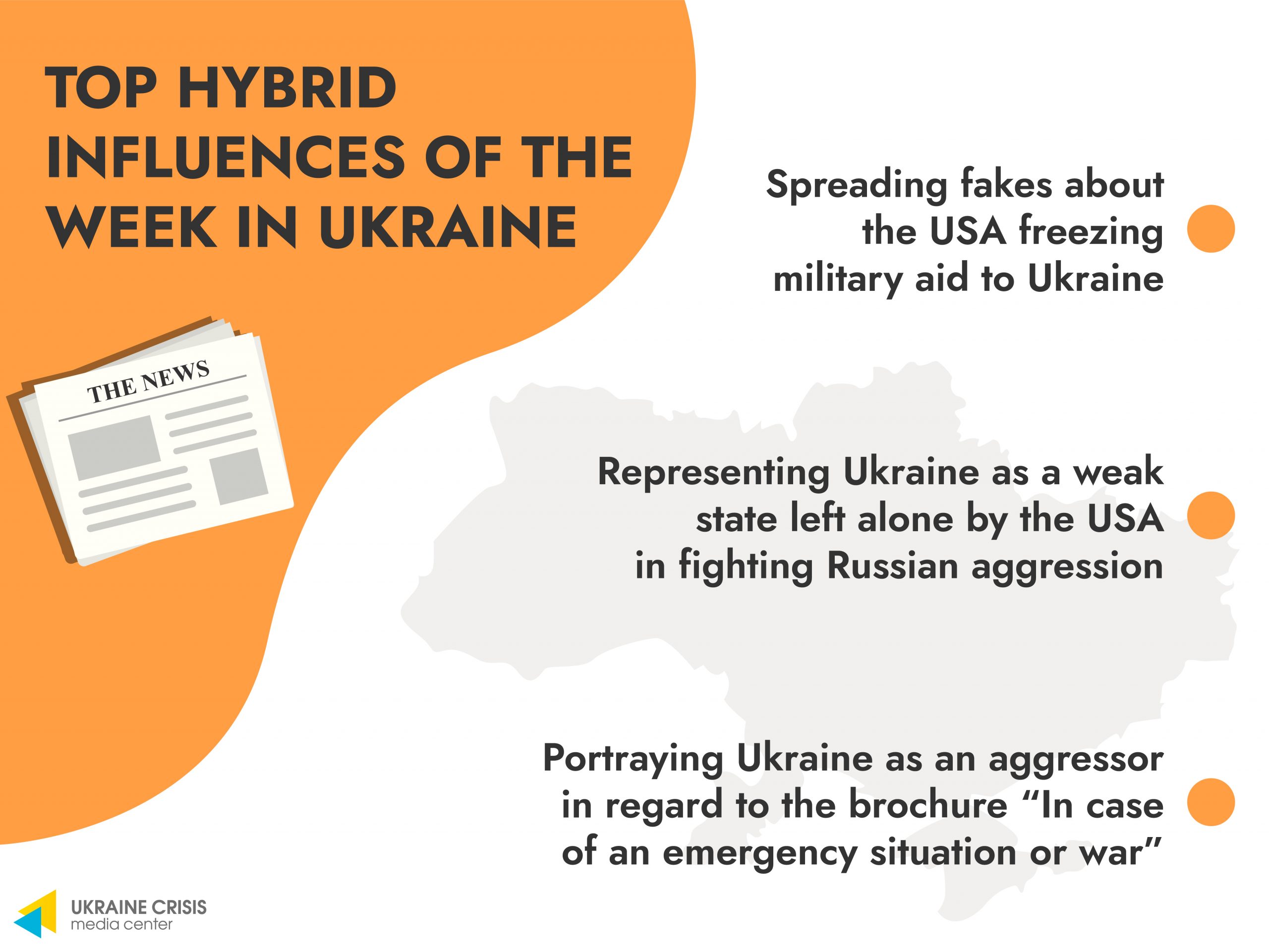These are the key hybrid influences of this week under our #HybridWeekly rubric:
- Pro-Kremlin forces have been disseminating fakes concerning the military aid to Ukraine from the US to undermine Ukraine’s partnership with Washington. They pushed the idea that the White House had held back security assistance to Ukraine. In reality, the US fully provided two aid packages worth $275 million to Kyiv. An additional package of $100 million was promised in case Russia continues to build up troops along Ukraine’s border. Since the withdrawal of Russian military forces has started, though only partially, the package was used for contingency funds in the event of a further Russian incursion into Ukraine.
- Messages on “freezing the military aid” have been used to portray Ukraine as a weak state abandoned by the US in the fight against Russian aggression. Among other things, this is done to sow dismay as a strategic goal of disinformation. The pro-Kremlin actors attempt to persuade the audience that Ukraine has been betrayed by its partners, thus making it more susceptible to the idea of accepting the Kremlin’s terms.
- This week, the Center for Strategic Communications and Information Security has presented the brochure with practical recommendations on how to behave in case of an emergency or war. The need for such a guide has been highlighted by the recent escalation of Russian aggression on the borders of Ukraine and in the occupied territories. The Kremlin’s actors used this as an opportunity to portray Ukraine as an aggressor preparing for the offensive. This strengthens the false narrative of Ukrainian troops build-up pushed by the Russian media to justify the occupant’s illegal acts, such as constant violations of the ceasefire.



